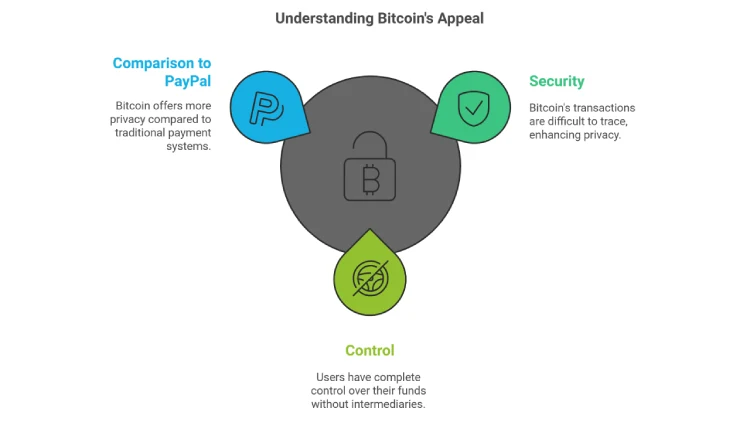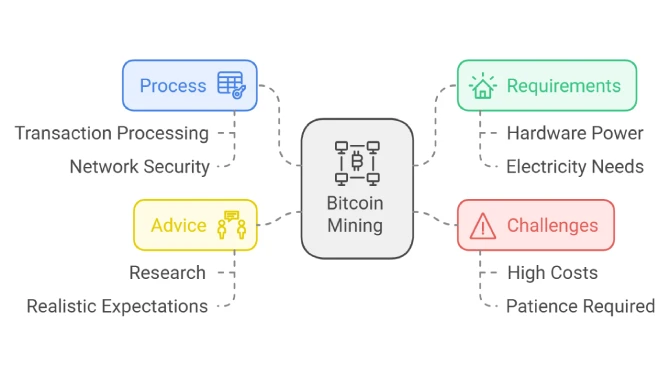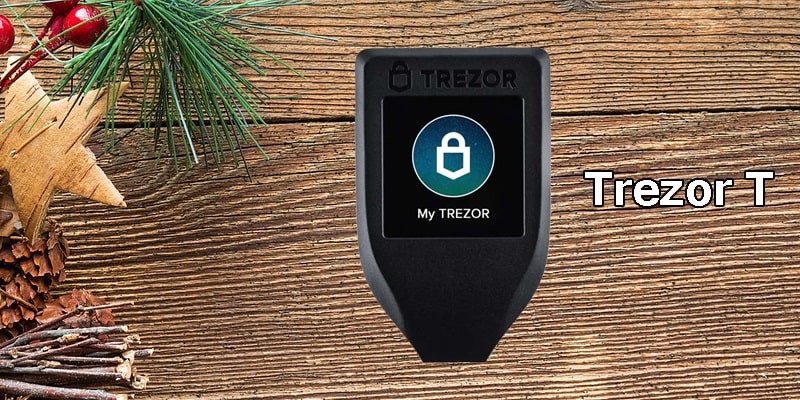If you googled about cryptocurrency, you already have to know Bitcoin is the most valuable out there. It is a digital currency worldwide. If you are looking for any kind of basic details about the most valuable cryptocurrency, you are in the right place. Maybe you already find out things with the help of the internet. But after reading this Bitcoin beginners guide, those little pieces you found from all around the internet will make more sense. A beginner should follow the Bitcoin Beginners Guide.
Learn what is Bitcoin.
This is not rocket science and for the future, you need to have basic knowledge about bitcoin. You will find out all in this Bitcoin Beginners Guide. Bitcoin is on the top cryptocurrency list in the first stage.
Table of Contents
Bitcoin Beginners Guide
In this Bitcoin Beginners Guide, get a clear idea about Bitcoin. It’s money that you cannot touch but use. It is like your credit card or online banking. But bitcoin is more secure and nobody can easily track any transaction that is made by bitcoin. Well, most of the time it’s not possible to track transactions, so this is the most secured currency right now. For example, PayPal is an online payment system but Bitcoin gives you full control of your money.
When And Whom
In 2009, Satoshi Nakamoto invented Bitcoin. Well, Satoshi Nakamoto is just a name, and this person is still anonymous to everyone. He is the one who mined the very first Bitcoin. Many know he developed Bitcoin, and he was the first to publish a Bitcoin whitepaper.
How To Get Bitcoin:
Like we see people mining gold, bitcoin mining is also a similar thing but mining tools are computers. Every 10 to 15 minutes your computer gets used by the network to do pending transactions. Because of the protection equivalent, cryptocurrencies have these days they need so many computers and IPs to sustain the security of each transaction.
Depending on your hardware power, for each transaction your computer performs, you get a small share of that. In the beginning, it was easy for a normal computer to mine bitcoin but later it became popular. It has become the most valuable currency and now people need more powerful computers to mine them. Otherwise, you will be spending too much money on your electricity bill than you earn by mining. Here is an article about “Easy Ways To Earn Free Cryptocurrency“
Before you start mining you better do your research. People who mine probably have their electricity plan and personal warehouse to set up all the rigs they need for mining. So with your own don’t hope to earn a huge amount of money because mining uses up loads of electricity. You need patience for mining.
Buying Bitcoin:
Can you buy less than 1 bitcoin? Well, the answer is yes,
Because each bitcoin can be split into 100,000,000 pieces. Each unit of bitcoin, or 0.00000001 bitcoin. So you can buy 0.00000001 bitcoin if you need it. Every single unit is called satoshi = 0.0000001. You need a wallet to store your BTC, and there you can buy Bitcoin using your debit/credit card. For instance, you can buy your first Bitcoin from Coinbase to get $10 free after buying the first $100 BTC. But buying Bitcoin with a credit/debit card may not be easy from all around the world. Using your bank cards may require connecting your bank information with your digital wallet, that’s not always a good idea. Most private Bitcoin users use hard cash to buy Bitcoin by meeting the seller. You can also buy Bitcoin from Bitcoin ATMs. For more updates follow Bitcoin Beginners Guide.
Where To Store
Well, you cannot store digital money in your real wallet! There are so many digital dedicated wallets for Bitcoin. Different wallets have different addresses and you can have as many wallets as you want or you can store bitcoin in a wallet without any limit. Those wallet addresses are highly encrypted and secured. Your real-world identity won’t be in your wallet. Trezor is one of the popular hardware Bitcoin wallets.
There are options for offline storage or cold storage which is more secure than web wallets. Because you know those websites are not highly reliable and there is always a risk of getting hacked. Maybe the whole web will disappear someday with all the money. Whenever you feel like using Bitcoin just transfer the amount from your offline to web wallet and use it. It’s safer if you keep your big amounts of money in a bank and the smaller amounts in your wallet. Desktop wallets are more secure than mobile or web wallets. On the other hand, a popular hardware Bitcoin wallet is more secure than a desktop, like a flash drive. A new user can follow the Bitcoin Beginners Guide.
How To Transfer
Most time you don’t need to meet a real person face-to-face to manage a transaction. With 3 or 4 confirmation messages and 8 to 10 minutes. You can transfer your Bitcoin to another wallet. This is how the process works. You need the receiver’s wallet address and send Bitcoin from your wallet to his address. The encrypted transaction goes through other computers around the world. So both the sender and receiver stay anonymous. Bitcoin can be used from anywhere in the world. you can learn more in the Bitcoin Beginners Guide.
Where To spend
These days, you will find that more and more dealers are starting to take Bitcoins as a method of payment. You can buy web hosting services using your Bitcoin Beginners Guide. You can order pizza using this, and there are rumors that Amazon may start accepting Bitcoin and other cryptocurrencies. Nowadays most of the popular online stores are accepting digital currency and this Bitcoin Beginners Guide helps you to understand how to use it. A new user can follow the Bitcoin Beginners Guide.
Sending Cost
There is a charge for everything right? Sending Bitcoin also costs a small amount. The fee is not fixed and depends on the market capacity. Your wallet always fixes the fee for you. Your transaction surely goes through some other computers around the world to keep you secure and anonymous right? Those computers get that small amount of fee from you. Don’t worry, those fees are not a deal-breaker.
Understanding the Importance Of Bitcoin Security
The decentralized nature of Bitcoin means there is no customer support or bank to retrieve lost funds. Scammers, hackers, and even accidental errors are constant threats. Understanding Bitcoin Beginners Guide and security is not just about preventing loss; it’s about empowering yourself with confidence in using cryptocurrency.
Key Risks in Bitcoin Security:
- Loss of Private Keys: If lost or stolen, recovering your Bitcoin is impossible.
- Hacks and Malware: Cybercriminals target exchanges, wallets, and devices.
- Phishing Scams: Fake websites and emails trick users into divulging sensitive information.
Types Of Wallets: Which One Is Right For You?
Bitcoin wallets are tools that store your private keys securely. Each wallet type offers varying levels of security and accessibility.
A. Hardware Wallets
- Definition: Physical devices like USB drives that store private keys offline.
- Advantages: Immune to online hacking, excellent for long-term storage.
- Popular Options: Ledger, Trezor.
- Setup Process:
- Purchase a device directly from the manufacturer to avoid tampered products.
- Follow the setup instructions, creating a strong PIN and backup recovery phrase.
- Never share your recovery phrase with anyone.
B. Software Wallets
- Definition: Applications for smartphones, desktops, or web browsers.
- Advantages: User-friendly and suitable for everyday transactions.
- Risks: Susceptible to malware and phishing attacks.
- Examples: Exodus, Electrum.
C. Cold Storage and Paper Wallets
- Definition: Offline methods such as writing private keys on paper or storing them on non-digital media.
- Advantages: Extremely secure if stored in a safe environment.
- Risks: Physical damage, theft, or loss.
How To Protect Your Bitcoin
Before you make any wallet, make sure the site is well-reputed. There will always be scammers so you better stay alert while using any wallet or any offer. Encrypt your wallet, Use some strong passwords, Use phone verification, and regularly back up your wallet.

You can save some of your Bitcoin in your offline wallet. You can even try using multiple wallets. Keep your wallet updated and secured even if costs you a little bit of money. Always keep your private keys and passwords saved offline. A new user can follow the Bitcoin Beginners Guide.
Market Capacity
The market capitalization of the world’s top digital currency is more than $80 billion, with a price per coin of more than $3152. As per coinmarketcap total market cap is 123 billion and Bitcoin is dominant at 60%. Depending on the need and supply bitcoin’s market value goes up and down just like any other market. Imagine the time when people will start using digital currency more than normal money. A new user can follow the Bitcoin Beginners Guide. Bitcoin Beginners Guide value will increase more than double by then. Hackers and other illegal users from the deep web and the black market made Bitcoin famous till now. Why wouldn’t they? It is the most secure way to pay and get paid right?! How knows? Hope you get some ideas from this Bitcoin Beginners Guide. Hope you enjoy this Bitcoin Beginners Guide. Stay with us and find out many more new cryptocurrency-related staff. See you in the next article. Have a great day. Hopefully, this Bitcoin Beginners Guide help you to understand the basics. A new user can follow the Bitcoin Beginners Guide.
Mastering Private Key Management
The private key is your ultimate access point to your Bitcoin holdings. Mishandling it can lead to permanent loss.
Best Practices:
- Never Share: Treat your private key like your password; sharing it is akin to giving away your bank credentials.
- Secure Backups: Create multiple copies of your private key and store them in safe, geographically distributed locations.
- Encryption: Use strong encryption methods when storing private keys digitally.
Advanced Security Tips
For those serious about maximizing Bitcoin security, these advanced steps are crucial.
A. Multi-Signature Wallets
- Definition: Require multiple keys to authorize a transaction.
- Benefits: Adds a layer of security for joint accounts or high-value holdings.
B. Air-Gapped Devices
- Definition: Devices never connected to the internet, used solely for signing transactions.
- Usage: Generate and sign Bitcoin transactions offline, then broadcast them via an online device.
C. Anti-Virus and Anti-Malware Software
- Recommendation: Install reputable software and regularly scan devices used for accessing Bitcoin wallets.
D. Hardware Security Modules (HSM)
- Purpose: A physical device designed for secure storage and management of private keys, especially for businesses.
Recognizing And Avoiding Scams
Scammers frequently target Bitcoin users, particularly the Bitcoin Beginners Guide. Knowing their tactics is half the battle.
Common Scams:
- Phishing Emails: Fake emails prompt you to log in or provide sensitive data.
- Fake Investment Schemes: Promises of high returns with minimal effort.
- Impersonation Scams: Individuals posing as support staff or influential figures.
How to Stay Safe:
- Verify URLs: Always check the website’s URL before entering any information.
- Research: Validate the authenticity of services, exchanges, or offers.
- Never Rush: Scammers thrive on urgency. Take your time before making decisions.
FAQs: Bitcoin Beginners Guide
1. What is Bitcoin?
Bitcoin is a decentralized digital currency that operates without a central authority, such as a government or bank. It allows users to transfer value securely over the internet using blockchain technology.
2. How do I buy Bitcoin?
You can buy Bitcoin through cryptocurrency exchanges like Binance, Coinbase, or Kraken. To purchase, you need to:
- Create an account on an exchange.
- Verify your identity.
- Add a payment method (bank account, debit card, or credit card).
- Place an order for Bitcoin.
3. Do I need a wallet to store Bitcoin?
Yes, a wallet is essential to store and manage your Bitcoin securely. Wallets come in various forms, including:
- Hardware wallets (e.g., Ledger, Trezor)
- Software wallets (e.g., Electrum, Exodus)
- Online wallets (offered by exchanges)
4. Is Bitcoin secure?
Bitcoin transactions are secured through cryptographic technology, making them highly secure. However, your Bitcoin’s safety depends on how well you protect your private keys and wallet. Avoid scams, phishing attacks, and keeping Bitcoin on exchanges for long periods.
5. Can I lose my Bitcoin?
Yes, Bitcoin can be lost if:
- You lose access to your private key or wallet.
- Your wallet is hacked.
- You send Bitcoin to the wrong address (transactions are irreversible).
6. What is the blockchain?
The blockchain is a public, decentralized ledger that records all Bitcoin transactions. It ensures transparency, and security, and prevents fraud by making transaction data immutable.
7. Are Bitcoin transactions anonymous?
Bitcoin transactions are pseudonymous, meaning your identity isn’t directly tied to your wallet address. However, transactions are publicly visible on the blockchain, and sophisticated methods can potentially trace them to individuals.
8. How do I secure my Bitcoin?
Here are key security tips:
- Use a hardware wallet for long-term storage.
- Enable two-factor authentication on exchange accounts.
- Back up your wallet’s private keys securely.
- Avoid sharing private keys or sensitive information.
9. What are Bitcoin mining and miners?
Bitcoin mining is the process of validating transactions and adding them to the blockchain. Miners use powerful computers to solve complex mathematical problems. They are rewarded with Bitcoin for their efforts.
10. Can I mine Bitcoin myself?
You can mine Bitcoin, but it requires substantial investment in mining hardware, electricity, and technical knowledge. Solo mining is less profitable today due to increased competition, but joining a mining pool is an option for the Bitcoin Beginners Guide.
Conclusion:
Bitcoin represents a revolutionary shift in how we think about money, offering unparalleled freedom, decentralization, and global accessibility. As a beginner, navigating the world of Bitcoin might feel daunting at first, but with the right knowledge and tools, you can confidently step into this transformative financial ecosystem. By understanding the basics of Bitcoin, its underlying blockchain technology, and essential security practices, you equip yourself to make informed decisions. Remember that with great financial independence comes personal responsibility. Safeguarding your Bitcoin and staying informed is vital to maximizing its potential while minimizing risks.




